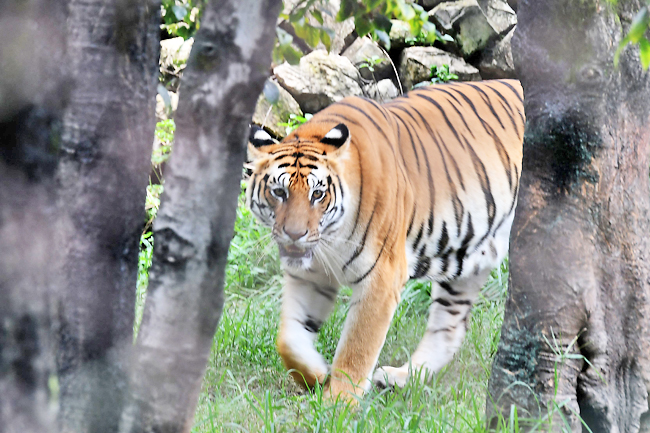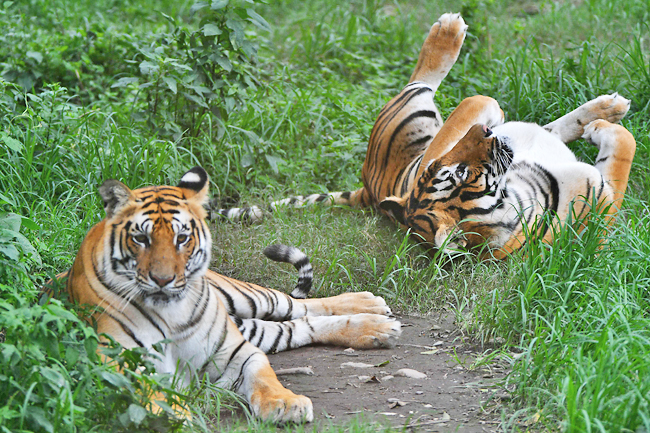KATHMANDU (AFP) – Nepal has nearly tripled its wild tiger population, officials announced on Friday, in a victory for the Himalayan country’s efforts to help the big cats claw their way back from extinction.
Deforestation, human encroachment on habitats and poaching have devastated tiger populations across Asia, but Nepal and 12 other countries signed a pledge in 2010 to double their numbers by this year.
The Himalayan republic is the only country to meet or beat the target and a survey in 2022 counted 355 of the creatures, up from around 121 in 2009.
“We have succeeded in meeting an ambitious goal… I thank everyone involved in conservation of tigers,” Prime Minister Sher Bahadur Deuba said at an event unveiling the figures in Kathmandu.
Conservationists surveyed the population with thousands of motion-sensitive cameras set up across a vast stretch of Nepal’s southern plains, where the majestic predators roam.
Wildlife experts combed through thousands of images to identify individual animals by their unique stripes.



The country’s internationally praised efforts to increase tiger numbers have, however, had a negative impact on some communities living near their habitats.
At least 16 people have been killed in tiger attacks in the past year, according to government data.
More than 100,000 tigers roamed the world at the turn of the 20th Century, but that number fell to an all-time low of 3,200 in 2010.
The 2010 Tiger Conservation Plan signed by Nepal is backed by several celebrities, including actor Leonardo DiCaprio.
The plan quickly began bearing fruit, and in 2016 the World Wildlife Fund and the Global Tiger Forum announced that the wild tiger population had increased for the first time in more than a century.
World Wide Fund for Nature’s (WWF) Nepal representative Ghana Gurung said the country’s achievement had set the benchmark for tiger conservation globally, but has also thrown up new challenges.
“The challenge now is to manage it, and manage the tiger-human conflict… we need to take an integrated approach to minimise the problems,” he told AFP.






